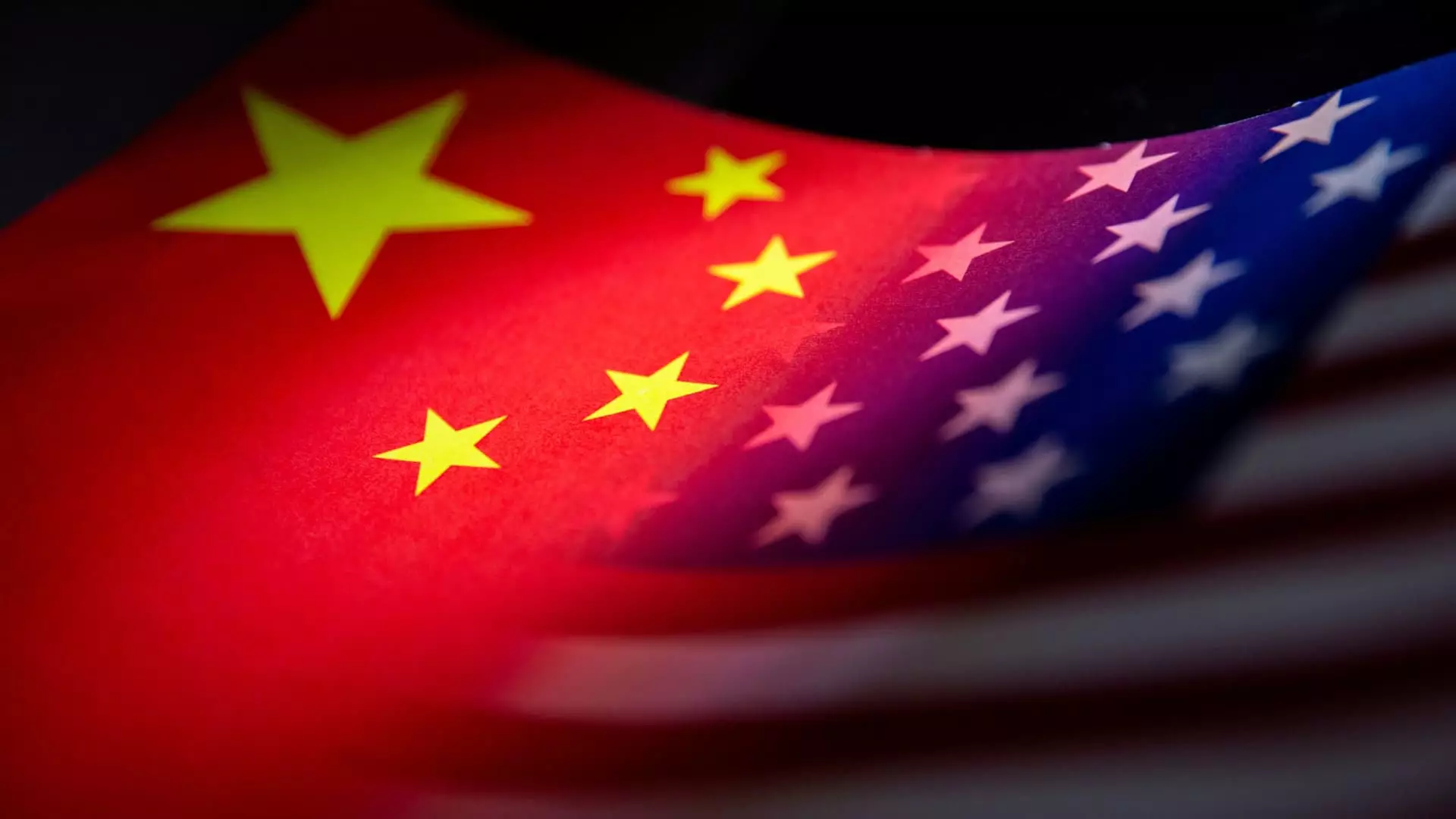Chinese President Xi Jinping’s recent outreach to global executives was ostensibly aimed at smoothing the path for foreign investment. However, this initiative raises critical questions about the actual environment for business dealings in China. While Xi extols China as a bastion of safety and stability, potential investors must grapple with a reality filled with profound unpredictability and bureaucratic labyrinths. As rising trade tensions with the United States loom larger, the emphasis on cooperation seems alarmingly naïve—practically inviting foreigners to join a game where the rules frequently change.
In his meeting with high-profile executives, Xi asserted that multinational corporations should bear the responsibility to “uphold global order.” This assertion feels like an unburdening of local responsibility that companies enjoy back in their home countries. Why should foreign companies compromise their principles to maintain a facade of stability when the volatility of the Chinese market appears to be an open secret? The global financial landscape demands a keen sense of reality, not a mirage supported by political rhetoric.
Trade Tensions and Propaganda: A Dangerous Mix
The backdrop of rising tariffs and new trade restrictions from the U.S. serves as a noteworthy cautionary tale. President Trump has stoked fears regarding China’s alleged role in various crises, prompting a wave of tariffs that have strained the two nations’ economic ties. These geopolitical tensions manifest not just in increasing tariffs but also in restrictive measures aimed at curtailing China’s technological development. By presenting an image of cooperation while simultaneously threatening retaliatory measures, Xi and the Chinese leadership are essentially playing a high-stakes game of chicken.
Xi’s claim that “U.S.-China trade tensions should be resolved through negotiations” has merit, yet it appears almost disingenuous against the backdrop of ongoing administrative aggression. How can anyone feel secure in investing when the country’s leaders seem willing to wield protectionist measures at the slightest provocation? The call for negotiation is indeed something to support, but genuine dialogue necessitates sincerity—a commodity missing in recent exchanges.
The Promise of Investment: True or False?
In asserting that investing in China is akin to “investing in tomorrow,” Xi overlooks the genuine risks associated with high-stakes financial commitments in the country. Businesses face a maze of compliance, corruption, and competition from state-owned enterprises. Companies like Apple and Tesla have achieved remarkable growth in China, but they have also had to navigate governmental scrutiny and public relations pitfalls. This dichotomy raises the question: can any firm completely secure their investment when the playing field is fraught with uncertainties?
Xi’s words emphasize “fair opportunities” for foreign businesses, but these proclamations are often undermined by the practices on the ground. The preferential treatment of local companies and omnipresent government involvement render the notion of a level playing field dubious at best. Foreign executives must ask themselves if they are genuinely welcome or merely being courted to present the illusion of inclusivity.
The Impact of Global Supply Chains
Xi’s commentary on global supply chains touches on an essential truth: stability and interconnectedness are crucial for modern economies. However, it is essential to recognize that interdependence can also create vulnerabilities. The ongoing economic decoupling of the U.S. and China may deliver a surreal kind of decimation in global commerce. This fragmentation would not only ensnare China but also trap foreign companies relying on Chinese supply chains.
Therefore, the question must shift from “Should we invest in China?” to “Can we afford the cost of being locked into this unstable market?” As competitors worldwide, diversified supply chains that incorporate a mix of countries offer a far more sustainable investment strategy. No investor should allow themselves to be pigeonholed into a single market that exhibits such erratic behavior.
A Call for Critical Engagement
Xi’s overtures toward global business leaders should urge a critical reassessment of engagement with China. The instincts to invest in the world’s second-largest economy should be tempered with caution and vigilance. In a climate marked by confusing rhetoric and an unpredictable governance style, investors must prioritize strategic assignments that mitigate risks instead of propelling them into the volatile depths of an uncertain market.
In this era, remaining steadfastly committed to liberal values means standing against business practices that seek to blur ethical lines. While investment opportunities in China can be tantalizing, they are fraught with implications that may extend beyond mere financial gain. Engaging with China must not come at the expense of transparency and corporate morals. As potential partners in progress, global businesses should neither be naïve nor complicit in perpetuating an business ecosystem shrouded in contradictions.

